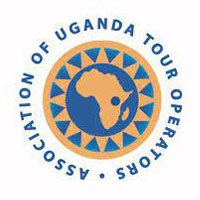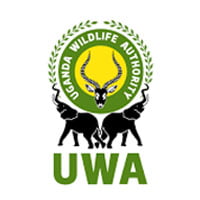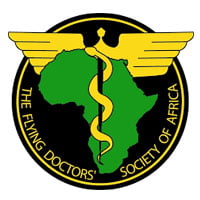F.A.Q About Visiting Uganda & Rwanda
Uganda is a tropical country with higher altitude areas having cooler temperatures e.g. ( Kigezi highlands, Mgahinga, Rwenzori mountains, Elgon mountains), etc, and the lower altitude areas having warmer temperatures.
Uganda has only two seasons, that is; the dry season and the wet season.
Daytime temperatures are generally warm and hence one has to wear light clothes and the evening temperatures are cooler especially in the high altitudes hence one has to carry sweaters, rain ponchos or heavy jackets.
In case one is going for mountain climbing or primate tracking in the natural forests, a waterproof jacket, and hiking boots are required. Here is a packing list of what you should carry for gorilla trekking
In case of community walks you are advised to dress appropriately around & the natives as it is culturally advised for people not to expose much of the body
You are advised to bring sunscreen, mosquito repellant, a valid passport, all the visa requirements to all the countries that you may wish to visit, a torch, and binoculars. And lastly, do not forget to bring a wonderful smile.
A packing list is usually mentioned as part of your itinerary. This is to help you pack appropriately and not miss out on essential items, or pack ones you will not be using.
You can drive in Uganda using a foreign license for up to 3 months, after which you will need to get a Ugandan driving license from Uganda Revenue Authority or an international driving permit.
You will be given a temporary driving license which will be valid for one month after which you will take it back to get the real driver’s license. The driving licenses are valid for 3 years, after which they need to be renewed.
Traffic drives on the left in Uganda. The speed limit on highways is 80km/h and 50km/h in the built areas. You might not see the speed limit signs frequently in some places but take extra care because police strictly enforce this law and breaking speed limits can result in a fine, imprisonment, or even both.
While driving on roads in Uganda be aware of animals crossing, boda-bodas, children, and any other livestock.
It is advisable to drink bottled water (mineral water) in Uganda as the water flowing from taps is not treated up to consumption levels. It is safe to use tap water to brush your teeth as long as you don’t swallow any of it. If you are not comfortable with this idea, use bottled water instead.
Regulations governing the importation of dogs and cats into Uganda.
Must have a Movement permit. An official and authentic “moving permit” should be obtained from the veterinary authority of your area of origin.
Certificates: A bill of health certifying that the pet is free from disease. It should be issued by a registered veterinary surgeon or official and should be properly signed and stamped within ten days of shipment.
A certificate or letter from the local veterinary authorities indicating that the area of origin of the pet is free from rabies.
Vaccinations: Dogs require vaccination against distemper, hepatitis, leptospirosis, parvovirus, and rabies. It should have been done not less than 30 days prior to arrival at any point of entry into Uganda
Cats require vaccination against feline enteritis and rabies. It should have been done not less than 30 days prior to any arrival point into Uganda.
Transportation: While in transit, dogs and cats must not come into contact with other animals. To ensure this, each pet should be appropriately crated.
Tipping will always be appreciated and it is normal to tip 5-10% in hotels and restaurants. Guides and drivers should always be tipped US$ 5-15 per day depending on the group size, number of days and your satisfaction.
The official language spoken in Uganda is English among over 30 plus native languages.
The government of Uganda requires proof of the yellow fever vaccination received at least 10 days before the arrival date before entry into Uganda.
Travelers who do not meet the health requirement must be vaccinated at the airport with the possibility of isolation at the traveler’s own costs. All travelers should take malaria prophylactic drugs. Mosquito repellant is also one of the requirements advised to be in possession by the traveler.
Learn more about Yellow fever vaccination and why it is important.
The Government of Uganda introduced the online visa application system with effect from 01 July 2016.
- Go to the Immigration website at https://visas.immigration.go.ug/
- Please make sure you have the following documents in .pdf, .jpeg, .png or .bmp format: a copy of your passport, copy of recent passport size photograph and a vaccination certificate (Yellow Fever)
- Fill in the form (normally you need an “ordinary” visa, single entry)
- When you send the form you will immediately receive a tracking code. This code helps you to keep track of how far your application has progressed. You can check its status from this webpage
- The Ugandan authorities will send you a letter in the email after they have approved your application (please check your SPAM folder too)
- Print this letter and bring it with you when you arrive at the overland border or at Entebbe International Airport. You need this letter to be allowed to purchase the entree visa there for US$ 50 Some nationalities do not require a visa, please check this in advance. Here is our article that can give you a complete guide to Uganda visa requirements and process
Feel free to reach out if you have a question that is not listed on our Frequently Asked Questions. There is an extensive array of other helpful articles that are found on our blog
- Sending us an Email through this website’s Contact us page is the easiest and fastest way – since you are already here.
- Find us on Facebook at www.facebook.com/exclusiveafricansafaris or Simply Search Exclusive African Safaris and you can Easily find our official page with our brown and green elephant logo.From there, we can talk and interact some more about whatever you might want our assistance in.
- Find us on Twitter at www.twitter.com/Uganda_Safari or Simply Search for Exclusive African Safaris. This will bring up our profile with the same brown and green elephant logo used on all our channels. We shall be able to talk and engage on a personal level here as well.
- On Pinterest, find us on www.pinterest.com/exclusiveafricansafaris or Search for Exclusive African Safaris. On our Pinterest profile, you will be able to find inspiring pins that will assist you in planning the perfect safari adventure.
- You can give us a call on +256 772 887484 for direct phone interaction. We will be happy to receive your call and even more eager to assist you.
- Come visit us physically at our office just outside Kampala. Imani Complex, First Floor, Suite L2L, Plot 6522. Mulawa – Kira, Wakiso – Uganda
Whichever way you get in touch with us, we shall be ready to provide you with all the assistance we can offer.
There is so much you can see and do in Uganda or Rwanda. You will see such attractions as River Nile, Mount Rwenzori, Lake Victoria, Mountain Gorillas, Chimpanzees, thick rain forest and so much more. Even kindergarten animal chart favourites like Zebras, Lions, Giraffes and Elephants. Here is our extensive article that highlights more than 35 things you can see, do and enjoy in Uganda.You can engage in so many activities such as wildlife tracking, launch cruises on the lake and rivers, adventure sports on the Nile, bird watching, cultural visits among so many others.With a huge collection of animals, plants, landscapes and cultures you will see, do and experience a lot when you visit East Africa. Here is our attractions page where you can take your time to know what is where.
Our blog also features many articles to give you an even deeper insight into what is possible for you in both Uganda and Rwanda.
The personal touch that comes with every activity of the Safari. Experiences such as gorilla trekking, game drives or white water rafting in the Nile are much better for our visitors.This is because our experienced driver guides take the utmost responsibility of creating an unmatched experience. This is why our visitors keep recommending us to their friends and family members.
Booking several months in advance is the desired way to go about your trip planning. This helps us to plan properly without rushing, and prepare in advance for the great execution of your Safari.For some activities where slots are limited – such as gorilla trekking, we advise planning even further ahead because gorilla trekking permits are given on a first-come-first-served basis.Read our booking terms and policies to know how long ahead you might need to plan.
Absolutely. A trip can be designed based on your interests and budget. Through interactions with you, we collaborate on planning for you the trip that will meet all your needs.If you already know some details of what you would want, feel free to use our safari inquiry form to give us the details of what you want – and then we design a safari based on that.
Sometimes there are various discounts. Whether it is for a solo tour or a group trip, you can always ask and the available discounts can be effected in your tour plan. Discounts are usually communicated on our website and social media channels. Whether the discounts are communicated or not, just ask anyway and it could be your lucky day. No harm in asking, right?This article about how you can save money on a safari will show you some helpful tips and trick that will save you some money and not sacrifice your overall experience.
In case of an emergency, small or big – your tour guide is usually the immediate person who can offer you all the necessary assistance. Beyond your driver-guide, you can always get in touch with anyone from our office via the numbers shared with you.Depending on the emergency, you can also contact local law enforcement and authorities. All this information is provided to in your final itinerary copy and to the driver-guide as well.
You can contact the Uganda Police through any of the relevant numbers listed on this emergency police contacts page of their official website.
Only in the bigger cities. In Major cities, you will find establishments that accept all cards from all over the world. These are mostly big establishments like hotels and chain supermarkets.You might not be able to use your cards for light shopping in the smaller towns. All banks offer foreign exchange services where you can convert your money into local currency that is easier to use.We often advise that you change your money to local currency at the start of your safari. This is the extra money you will use for extra spendings such as tips, souvenirs and such other expenditure.
Our article about the extra money on safari will help you easily gauge how much you can carry with you.
This depends upon the advice of your doctor or physician. You might need to consider antimalarials for prevention purposes.A yellow fever vaccination certificate is also necessary if you have recently been to a place where yellow fever is endemic. Here is our article that goes into deeper details about yellow fever – and why the vaccination is very important.We recommend you consult with your doctor about any sort of medicine such that you can get professional advice.










